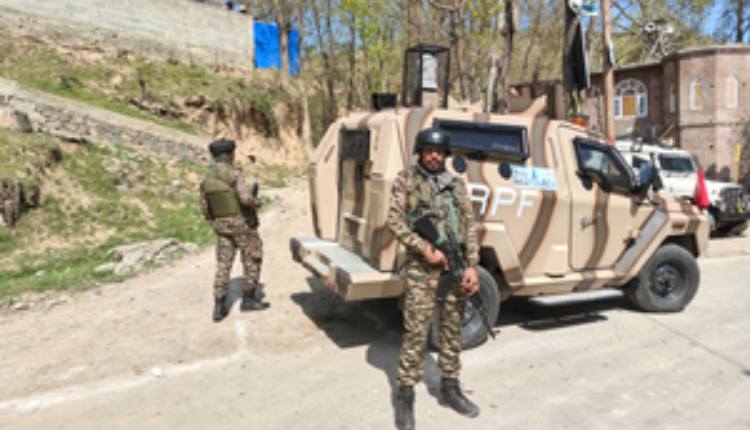New Delhi: The role of the Pakistan Army in the Pahalgam terror attack that claimed 26 lives became clearer when the Indian security forces gunned down one Sulaiman, considered to be the mastermind.
Suleman, who is part of the Lashkar-e-Tayiba, which carried out the April 22 attack, also goes by the name Hashim Moosa. He was an ex-Pakistani army official who was killed during Operation Mahadev, carried out by the CRPF and Jammu and Kashmir police.
During the operation, two other terrorists, Abu Hamza and Yasir, too, were eliminated by the security forces. “Three terrorists have been neutralised in an intense firefight. Operation Continues,” the official X handle of the Indian Army’s Chinar Corps said.
The killing of Sulaiman further cements the fact that the ISI had played a major role in the Pahalgam attack. Suleman was a highly trained terrorist and an asset of the ISI. He was roped in to oversee the attack due to his expertise and the time he had spent in the Pakistan Army.
The probe into the Pahalgam attack showed that it was the ISI and Lashkar-e-Tayiba that carried out this attack. It was a guarded conspiracy, and the planners decided to hire only Pakistani terrorists as they wanted it to be a top secret.
While at first the role of some locals did come up, the probe found that while some had offered shelter and food, they had no clue about the attack.
In the run-up to the planning, the ISI had roped in one Sajid Jutt to deploy only Pakistani fighters to carry out the attack. Only a handful of people were involved in this attack. Jutt was told to identify Pakistani Lashkar-e-Tayiba terrorists who were fighting in the Valley to carry out the attack, and at any cost, not involve any locals, as they did not want the details to come out.
The attack squad was led by Sulaiman, who was part of the Pakistan army’s special forces commando squad. He has been in the Valley since 2022 after having trained at the Muridke camp of the Lashkar-e-Tayiba.
It may be recalled that in the aftermath of the Pahalgam attack, India had carried out Operation Sindoor during which Muridke, the primary training facility of the Lashkar-e-Tayiba, had been hit.
Investigations showed that Sulaiman was at the Tral forest on April 15. This means that he was close to the attack site at Baisaran nearly seven days before the strike.
Sulaiman, according to the investigating agencies, was also involved in the April 2023 attack on an army truck in Poonch in which five soldiers were killed.
The role of the locals had cropped up after the arrest of Parvaiz Ahmad Jothar from Batkote, Pahalgam, and Bashir Ahmad Jothar from Hill Park, Pahalgam. However, the probe learnt that they had a limited role. They only provided shelter, food, and some logistics for a few thousand Rupees.
During their questioning, they said that they had no clue about the attack and where it was taking place. They also said that they were not told about the plan by the terrorists.
This suggests that the ISI and Lashkar-e-Tayiba wanted to maintain utmost secrecy and planned the entire strike on a need-to-know basis. The Pahalgam attack was clearly aimed at creating a huge communal divide and also to stop the thriving tourism industry in Jammu and Kashmir after the abrogation of Article 370.
(IANS)
















